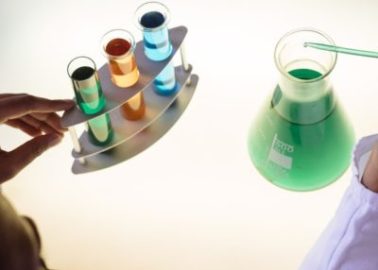A biosimilar is highly similar to biologics and is as safe and effective as the original biologic. In the U.S., both biosimilars and biologics are evaluated by the Food and Drug Administration (FDA) before approval. Amjevita is the first biosimilar approved for the biologic Humira for the treatment of rheumatoid arthritis and psoriasis. Although the market for biologics and biosimilars is witnessing significant developments, the same is not true for interchangeable biosimilars. In the U.S., the FDA has not yet approved any interchangeable biosimilar. The number of companies involved in development of interchangeable biosimilars is also very low. In July 2017, Boehringer Ingelheim announced enrollment of the first patient in its study to assess the interchangeability of BI 695501 with the U.S.-marketed formulation of Humira 40 mg/0.8 ml.
Production of biologics involves use of living organisms, recombinant DNA technology, and a highly complex and stringently monitored set of processes. The investment required for production of biologics is also high and can reach over US$ 500 million. Biosimilars need to meet the same quality, safety, and efficacy as their reference biologic. Thus, the manufacturing process is equally complex and prone to high failure rates, which increases the manufacturing cost.
In the U.S., a manufacturer of interchangeable biosimilar can seek licensure under section 351(k) of the Public Health Service (PHS) Act of a proposed interchangeable biosimilar for fewer than all of the reference product’s licensed conditions of use. The U.S. FDA is expected to bring insulin products under PHS Act, which is expected to offer lucrative opportunity for development of interchangeable insulin products. Such scenario suggests that although the market share of biologics and biosimilars is currently high, interchangeable biosimilars are expected to mark their presence in the near future.
Compared to biologics, biosimilars are cheaper and are considered as a significant cost saving option. However, the impact of biosimilars on the cost of biologics is expected to be less significant when compared with generic drugs. Generic drug manufacturers tend to offer significant discounts on generic products as the production cost of generics is lower compared to both biosimilars and biologics. Although the production cost of biosimilars is lower than that of biologics, biosimilar manufacturers tend to invest heavily on marketing of their products and the discount offered is relatively low.
In the near future, both biologics and biosimilars are expected to account for significant market share. Regulatory bodies around the world are focused on approval of biosimilars. As of January 2019, the European Medicines Agency has 14 biosimilar applications under review and the U.S. FDA approved 10 biosimilars in 2019. Moreover, several biologics manufacturers have started developing their own biosimilars in order to recover from losses due to patent loss of biologics and launch of their biosimilars by other companies. In line with this strategy, Amgen Inc. and Allergan plc., in December 2019, submitted a Biologics License Application to the U.S. FDA for ABP 798, a biosimilar candidate to Rituxan (rituximab). In terms of biologics, high demand for specialty drugs in developed economies is expected to favor growth of the market.



